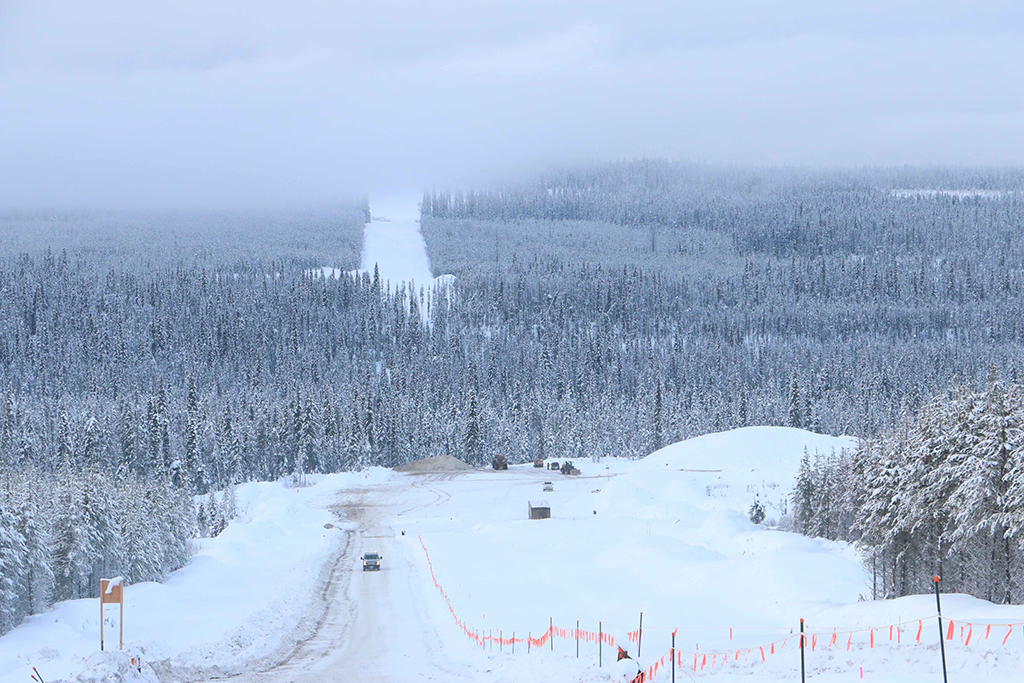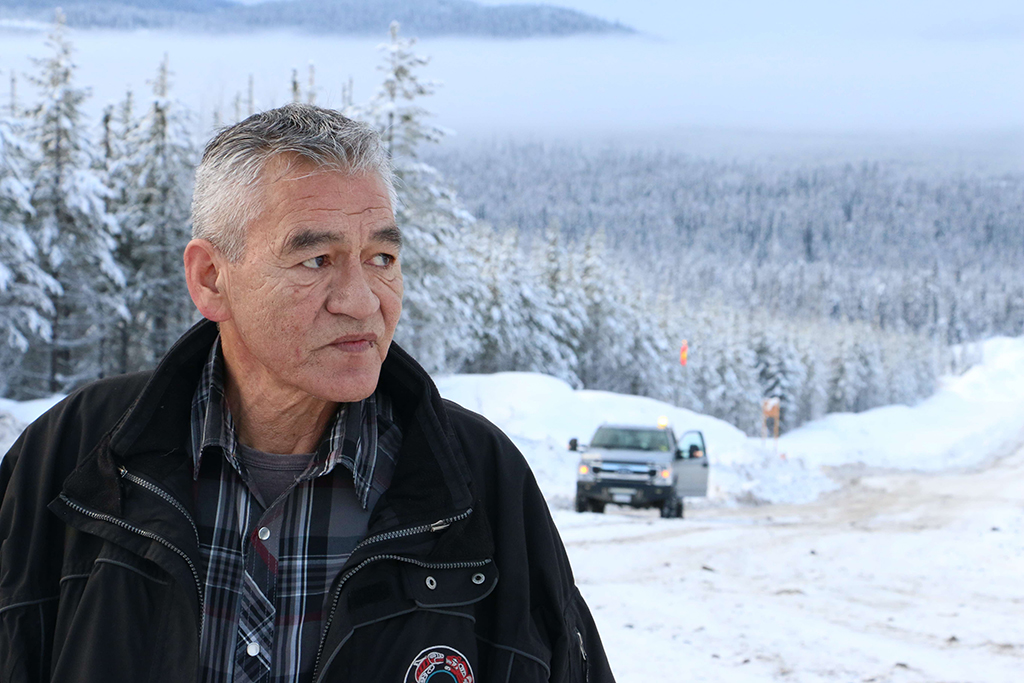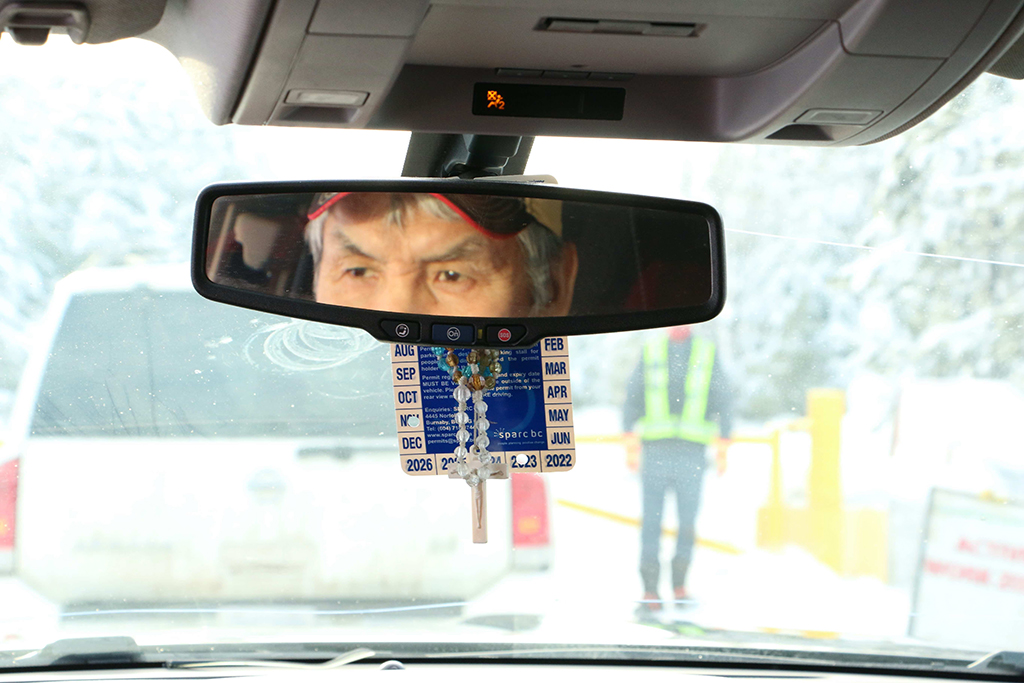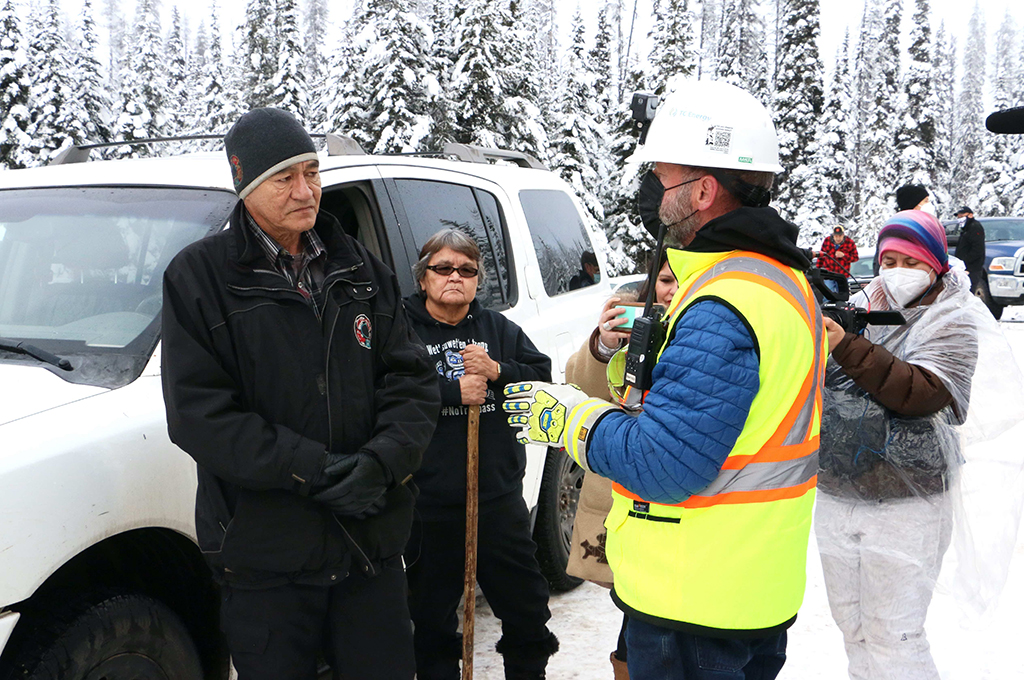“You’re all adopted for the day,” Chief Na’Moks says, sweeping a lanky arm toward the group of journalists jogging to keep pace with his determined strides.
The Wet’suwet’en Hereditary Chief has just skirted a gate recently put in place by Coastal GasLink to block access to its pipeline route, part of a group of Chiefs and Elders planning to inspect the pipeline worksite.
As he did, security for the pipeline company attempted to intercept members of the media who followed, telling us we needed to call its communications office in Calgary — despite being more than 50 kilometres from cell service.
“You’re in breach of the injunction,” the security officer added as we flowed past, referring to a B.C. Supreme Court decision that bars anyone from blocking construction of the 670-kilometre pipeline being built through northern B.C. and opposed by Wet’suwet’en hereditary leadership.
Na’Moks, whose English name is John Ridsdale, has kindly offered to make us honourary — if temporary — Wet’suwet’en members Friday so we can do our jobs reporting on the pipeline conflict.
He jokes despite the heated discussion that just took place with Coastal GasLink security. His brisk walk is as much to blow off steam as it is to access the pipeline construction that lies several kilometres beyond the gate.
Three years into the dispute that has made international headlines, seen dozens of people arrested and caused the high-profile three-day detention of two journalists taken into custody at this site in November, the person tasked with enforcing the injunction on behalf of Coastal GasLink appears not to understand its contents.

It does not give Coastal GasLink exclusive rights to the public resource roads it uses to access the pipeline route. It does not prevent people from travelling these roads.
It does not give the company the right to deny access to journalists.
Here is what the injunction does say:
It prohibits “physically preventing, impeding, restricting or in any way physically interfering with, or counselling others to prevent, impede, restrict or physically interfere with, any person or vehicle travelling to or accessing the vicinity of the area” surrounding the Morice West Forest Service Road.
It prohibits anyone from blocking access to people working on the Coastal GasLink Pipeline. It also prevents anyone from going within 10 metres of workers doing pipeline construction, prevents them from threatening employees and prevents them from interfering with their work.
The gaggle of journalists working hard to keep pace with Chief Na’Moks’ strides are not doing any of those things.

In addition, a previous court decision states that journalists are permitted to report from injunction zones — something it notes is especially important in Indigenous conflicts, which have historically been underreported by the media.
In September, logging company Teal-Jones temporarily lost its injunction against old-growth logging protesters on Vancouver Island when the B.C. Supreme Court ruled that RCMP had “improperly constrained” the media’s right to access.
In November, an RCMP officer cited that decision when he agreed to allow me supervised access to arrests taking place on the Morice road.

After my brisk walk attempting to keep up, I slow my pace, allowing the group to move on without me, and return to where Wet’suwet’en Elders and Clan Chiefs wait for Coastal GasLink to open the gate and allow their vehicles to pass so they can inspect the pipeline site.
“You know,” I tell the Coastal GasLink security worker when I get there, “media are allowed to report from within an injunction zone.”
“I don’t know that,” he responds.
Because it would be wildly inconvenient.
Because if you’re a company building a highly controversial pipeline with the unwavering support of governments, perhaps those details don’t matter.
“The injunction bars anyone from blocking access to pipeline worksites,” I tell him. “I’m allowed to walk this road, media or not.”
As we speak, the RCMP — who have spent more than $20 million policing the conflict — wait in a pullout a kilometre away for a call saying someone actually has breached the injunction. They are not here. Because nobody has.
The security gives me his final words: “I’m not going to comment.”
And that’s fine. His silence speaks volumes. I only need him to hear me. Because while I understand he’s just doing his job, I’m just doing mine.
It shouldn’t include being threatened with laws I’m not breaking. ![]()
Read more: Indigenous, Rights + Justice, Media
















Tyee Commenting Guidelines
Comments that violate guidelines risk being deleted, and violations may result in a temporary or permanent user ban. Maintain the spirit of good conversation to stay in the discussion.
*Please note The Tyee is not a forum for spreading misinformation about COVID-19, denying its existence or minimizing its risk to public health.
Do:
Do not: